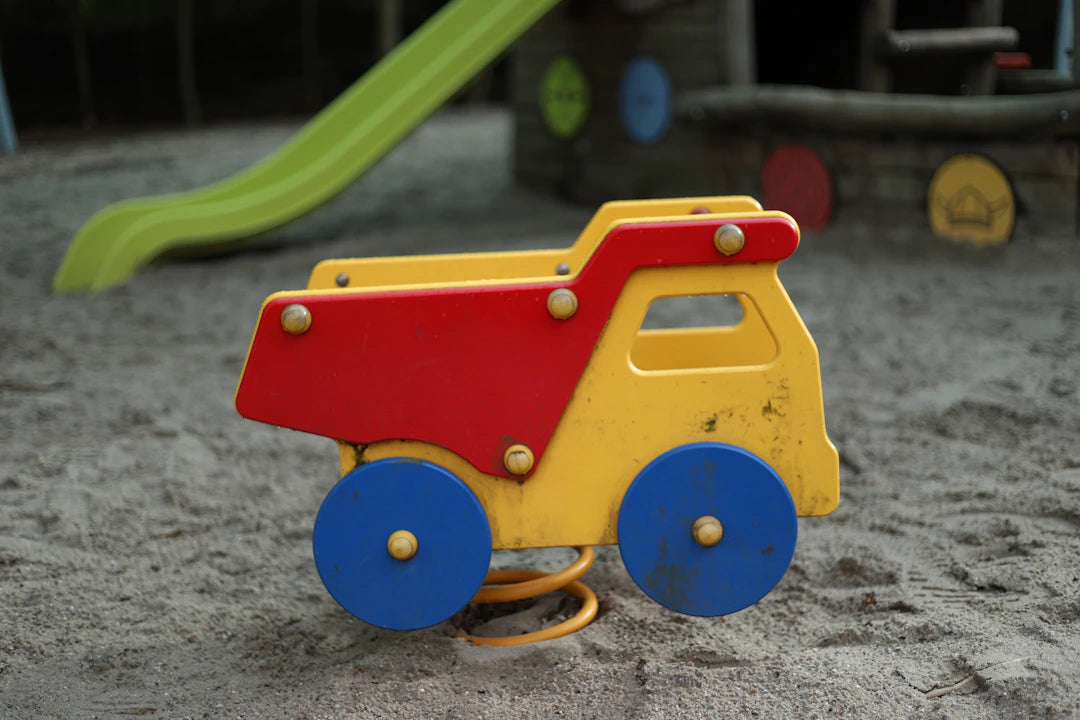(Valid for one time)

The Role of Educative Toys in Developing Motor Skills
Frequently Asked Questions
1. What are motor skills and why are they important for children?
2. How do educative toys enhance motor skills?
3. What types of educative toys are best for developing motor skills?
4. How does play contribute to children's learning?
5. What role does social play have in developing motor skills?
As parents, caregivers, and educators, we constantly look for ways to stimulate our children's growth and development. One powerful approach to enhance this journey is through play, specifically with educative toys that promote skill acquisition. Among the myriad of developmental benefits, the enhancement of motor skills stands out as crucial for young children. In this article, we will explore how educative toys can remarkably advance motor skills while providing a space for children to learn and engage creatively.
Understanding Motor Skills and Their Importance
Motor skills are vital for children's growth and development. They encompass a wide range of actions, from basic movements like walking and running to intricate tasks such as writing or using scissors. Broadly, motor skills can be categorised into two types:
Gross Motor Skills
Gross motor skills involve the large muscles in the body, enabling essential movements such as crawling, standing, and jumping. They develop as infants grow and start to explore their environment. Activities that encourage balancing, running, and coordination are vital for developing these skills.
Fine Motor Skills
In contrast, fine motor skills entail the smaller muscles in our hands and fingers. Executing tasks like buttoning a shirt, holding a pencil, or stringing beads requires specific precision that fine motor skills provide. These skills are crucial for everyday tasks as children grow into adults.
How Educative Toys Foster These Skills
The right educative toys can significantly enhance both gross and fine motor skills, making them an essential component of any child's development. Here’s how:
Encouraging Exploration and Physical Activity
Many toys encourage children to move, jump, and climb, allowing gross motor skills to flourish. For example, outdoor playsets or ride-on toys invite children to engage their whole bodies, allowing for exploration of their physical abilities in a fun, safe manner. As they jump off slides or balance on beams, they learn to control their movements and build confidence.
Hand-Eye Coordination Enhancements
Playing with ball games, puzzles, or stacking toys can significantly improve hand-eye coordination. When children engage in these activities, they learn the spatial relationships between their hands and what they are manipulating, training their brains to respond quickly and accurately. This continuous practice leads to increased precision, which is fundamental for successful fine motor tasks.
Encouraging Creativity and Problem-solving
Many educative toys come with interactive and adjustable features that encourage children to engage creatively with them. Toys that require problem-solving, such as building blocks or engineering kits, compel children to think critically and manipulate objects to achieve a desired outcome, further enhancing their motor skills.
Types of Educative Toys That Promote Motor Skills
With countless options available, it’s essential to understand which types of educative toys can effectively aid in developing motor skills. Here are some popular categories to consider:
Building Toys
- Blocks
- Construction Sets
- Magnetic Tiles
These toys encourage creativity while providing excellent opportunities for fine motor skill development. Children learn to pick up, balance, and connect pieces, which requires precision and coordination.
Sorting and Stacking Toys
- Shape Sorters
- Stacking Rings
- Nested Boxes
These toys require children to manipulate objects into specific positions, helping to hone their grip and dexterity while also promoting cognitive skills. The repetition of sorting and stacking is an excellent way for children to learn about shapes and sizes.
Art and Craft Supplies
- Crayons and Markers
- Scissors
- Glue and Glitter
Art supplies not only spur creativity in children but also refine fine motor skills. Children learn how to grip, cut, and apply pressure while creating their masterpieces, allowing them to learn while having fun.
Outdoor Play Equipment
- Trampolines
- Slides
- Balance Beams
Outdoor play sets encourage high levels of gross motor activity, improving children's strength, balance, and coordination. These skills are crucial for their physical development, allowing them to learn how to navigate their environment safely.
The Role of Engaging Play in Learning
Engaging play is pivotal in developing motor skills as it allows children to grow at their own pace while naturally learning through exploration. This style of play encourages intrinsic motivation, leading to a desire to learn and master tasks. By offering a variety of educative toys, children can discover new interests, develop continuously, and find joy in learning. The more they are encouraged to explore freely, the more competent they will become in their movements.
Social Skills through Cooperative Play
As children play with others, they inevitably learn social skills that complement their physical development. Sharing toys, collaborating on building projects, or simply engaging in games requires communication and teamwork. These experiences teach children how to negotiate, share, and express their thoughts, thus enhancing their social motor skills as well.
Developing Routine Through Structured Play
Structured playtime, facilitated by adults, can also enhance children's motor skills. Setting up obstacle courses using educative toys or organising cooperative games with peers creates a routine that children look forward to. Captivating playtime can establish patterns that promote skill-building while allowing children to learn in sociable settings.
Conclusion: Unlocking Potential through Playfulness
Educative toys are an invaluable resource when it comes to developing children's motor skills. They not only support fine and gross motor skill enhancement but also encourage creativity, social interaction, and a lifelong love of learning. By choosing the right toys and providing ample opportunities for play, parents and educators can significantly influence the developmental journey of children. Remember that children learn best when they are active and engaged, so let them explore, create, and thrive through the magical world of educative toys!

Leave a comment